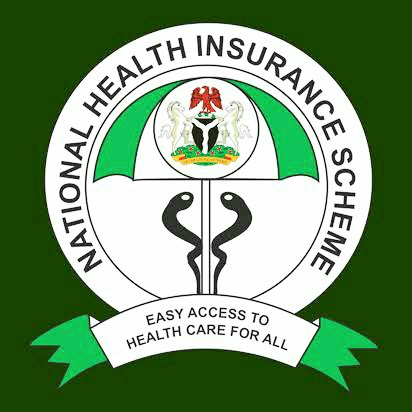National Health Insurance Scheme: All You Need Know
Are you wondering how you can access quality healthcare services in Nigeria without breaking the bank? Do you want to understand how the National Health Insurance Scheme (NHIS) works and how you can benefit from it? If so, you’ve come to the right place.
This article will provide an easy-to-understand overview of the NHIS in Nigeria and all you need to know about how to access affordable healthcare through the scheme.
We’ll look at how it works, who pays, benefits covered, how to register, make claims and more. Whether you are in the formal or informal sector, a working professional, students, unemployed or self-employed, read on to learn how the NHIS aims to make healthcare accessible and affordable for all Nigerians.
OVERVIEW OF THE NATIONAL HEALTH INSURANCE SCHEME (NHIS)
The National Health Insurance Scheme (NHIS) is a social health insurance program in Nigeria that aims to provide affordable and accessible healthcare for all Nigerians. The scheme was established in 1999 under Act 35 of the National Assembly and became operational in 2005. The goal of the NHIS is to ensure that every Nigerian has access to quality and affordable healthcare services.
The NHIS aims to provide health insurance coverage for Nigerians through various programs and initiatives. Some key things to know about the scheme include:
- It is managed by the National Health Insurance Authority (NHIA), a government agency responsible for regulation, oversight and ensuring access to health insurance for Nigerians.
- Health insurance under the NHIS is obtained through accredited Health Maintenance Organizations (HMOs). The HMOs work with healthcare providers to provide access to care for enrollees.
- The scheme has formal sector and informal sector programs. The formal sector social health insurance program covers employees in the public and private sector. The informal sector program is designed for self-employed individuals, retirees and unemployed Nigerians.
- Funding for the scheme comes from contributions from participants in the formal sector (through payroll deductions), government budgetary allocation, and premium contributions for the informal sector.
- As of 2022, over 12 million Nigerians were reported to have health cover under the NHIS. However, a majority of Nigerians still lack health insurance.
FORMAL SECTOR PROGRAM
The formal sector social health insurance program is designed for Nigerians working in the public and private sector. This includes both governmental and non-governmental organizations.
- Enrollment in the formal sector program is mandatory for federal government employees and voluntary for other workers.
- Employees contribute 5% of their basic salary towards health insurance coverage. The employer also contributes 10% of the employee’s basic salary.
- Upon registration, employees are issued identity cards that grant access to healthcare in accredited facilities across the country.
- Over 60% of those insured under the NHIS are in the formal sector program. However, a majority of Nigerian workers still operate in the informal sector without health insurance.
INFORMAL SECTOR PROGRAM
The informal sector program caters to Nigerians who are not part of the mandatory formal sector scheme. This includes self-employed individuals, retirees, unemployed people, and others in the informal sector.
- Participants can voluntarily enroll by paying a premium which varies based on the chosen health plan. Premiums range from ₦3,000 to ₦15,000 annually for individual coverage.
- As of 2022, there were over 900,000 Nigerians registered under the various informal sector programs. However, getting more participants enrolled remains a challenge.
BENEFITS COVERED UNDER THE NHIS
The NHIS provides comprehensive health benefits and services covered for enrollees. Some benefits covered include:
- Outpatient care including consultations, diagnostics tests, and medicines.
- Inpatient care including hospital accommodation, surgical operations, and emergency treatment.
- Maternity care including antenatal, delivery, and postnatal services.
- Preventive care including immunizations, health screening, and health education.
- Prescribed drugs, pharmaceutical care and diagnostic tests as outlined in the NHIS Drug Formulary and Diagnostic Test Lists.
- Eye care, dental care, HIV/AIDS treatment, cancer screening and treatment are covered to varying degrees subject to plan policies.
- Patients require small copayments at point of service to promote judicious use of resources.
CHALLENGES WITH THE NHIS
While the NHIS has made some progress since its establishment, it still faces a number of challenges:
- Low coverage and enrollment – Only about 5% of Nigerians are covered under the scheme currently. The informal sector enrollment remains low.
- Inadequate funding – Government allocation and premium collections are still insufficient to cover rising healthcare costs and enroll more people.
- Poor quality of care – There are issues with availability of accredited facilities, frequent shortages of drugs, and poor staffing in covered hospitals.
- Administration challenges – There are issues with HMO efficiency, claims management and reimbursements to hospitals.
- Limited benefits – Critics argue that the benefits package is inadequate and excludes some services.
- Irregular Premium payments – Some employers fail to remit employee premiums regularly thereby disrupting coverage.
FREQUENTLY ASKED QUESTIONS
Here are some frequently asked questions by people about the National Health Insurance Scheme (NHIS):
WHO PAYS FOR THE NHIS?
The NHIS is funded through contributions from participants, employers, and government budgetary allocation. Formal sector workers contribute 5% of their basic salary, while their employer contributes 10%. The government also allocates funds annually for the scheme.
HOW DO I REGISTER UNDER THE NHIS?
Government workers are automatically registered by their employers. Informal sector participants can visit designated NHIS offices, HMOs, or registration centers to complete registration formalities and make their premium payments.
HOW MUCH DOES THE NHIS COST?
For government workers, there are no upfront costs as contributions are deducted from salaries. In the informal sector, premiums range from ₦3,000 to ₦15,000 annually depending on the chosen plan.
WHAT BENEFITS ARE COVERED BY THE NHIS?
The NHIS covers outpatient and inpatient care, maternity services, prescription drugs, diagnostic tests, eye care, dental care, cancer screening and treatment, and more depending on the plan. However, some limitations apply.
CAN I USE NHIS OUTSIDE MY STATE?
Yes, the NHIS has a national coverage so participants can access care from accredited providers across Nigeria. However, out-of-state care may require referrals and pre-approvals.
WHAT IS THE COVERAGE DURATION FOR THE NHIS?
Formal sector membership runs as long as participants are actively employed and enrolled by their employers. Informal sector coverage lasts one year and can be renewed by paying the annual premium.
DOES THE NHIS COVER MY FAMILY?
Formal sector membership covers the enrollee’s spouse and 4 biological children under 18 years. Informal sector participants can get coverage for additional dependents at extra cost.
CONCLUSION
In summary, the NHIS is an important initiative by the Nigerian government to ease the burden of healthcare costs for citizens. While still facing some challenges, the scheme has made commendable progress since it was established in 1999.
As an eligible Nigerian, you can fulfill your responsibility by understanding the scheme, signing up for coverage under a suitable health plan, using your benefits judiciously and providing feedback to the NHIA for improvements. With all of us playing our part, affordable and quality healthcare can be a reality for every Nigerian through the NHIS.


